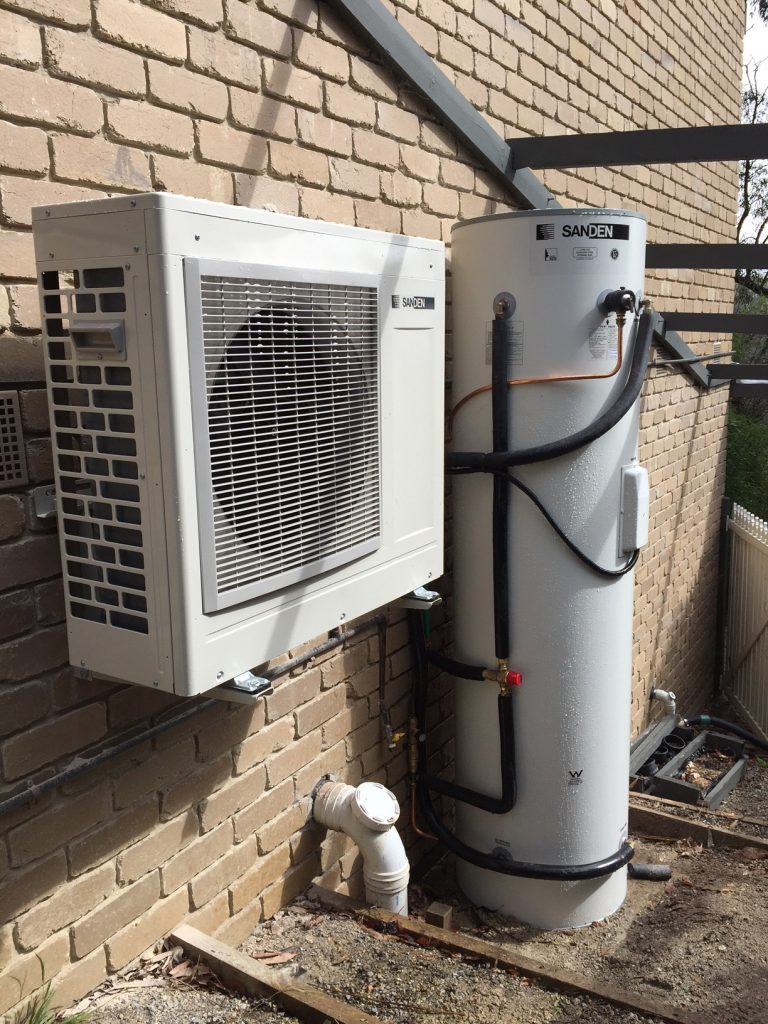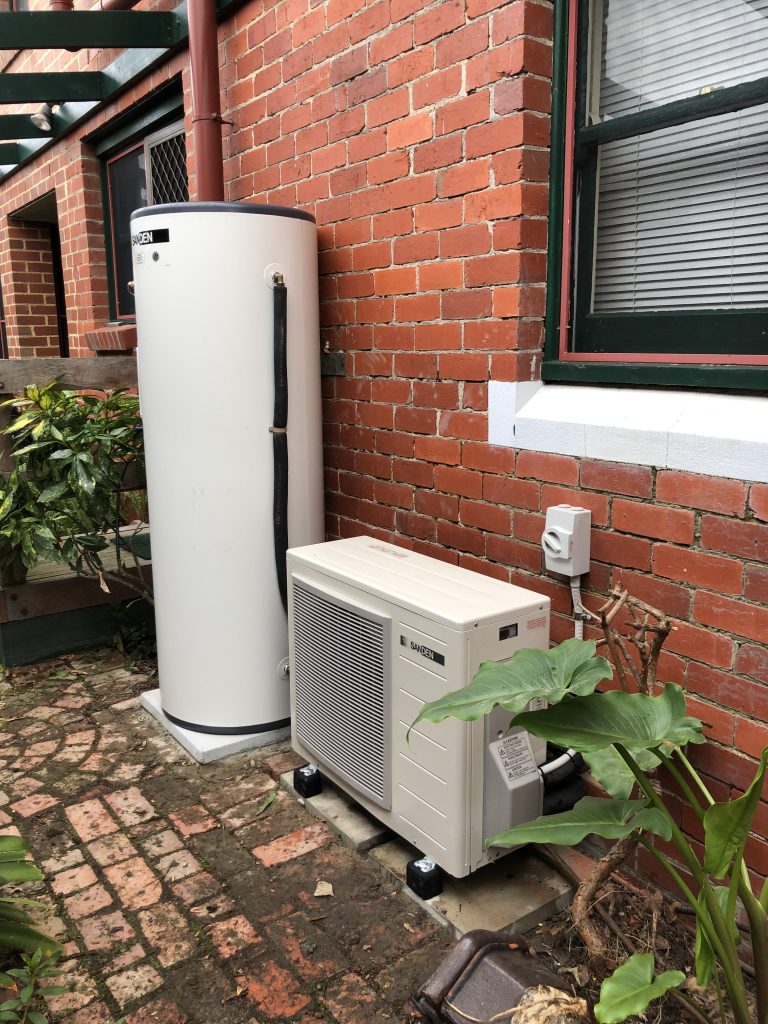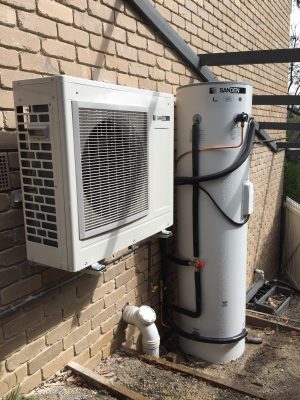
Using a heat pump is critical to ensuring that you have adequate cooling in the summer and heating in the winter. A heat pump can be used throughout the year because of its capacity to operate in either direction, but you shouldn’t count on it to survive forever.
Even with regular maintenance, a pump will eventually wear down to the point where it needs to be replaced. This point will occur sooner rather than later. There are a few warning indicators that system owners should look out for to determine whether or not it is time to hunt for a replacement pump.
However, it is essential to remember that it is not a safe practice for anyone to attempt to replace a heat pump. Before you do anything to the heating, ventilation, and air conditioning system, you should always get the services or the advice of a competent team. Simply bringing it down is dangerous because it can topple and land on anybody.
The first thing that an owner of a heating, ventilation, and air conditioning system needs to see is a decline in performance on BOTH the heating and the cooling capabilities of the unit. The heat pump employs the same process to either heat or cools a room; therefore, if there is a noticeable drop-off in either function, it can only signify that the pump is not working correctly.
The second thing that owners should notice, which will be very easy to see, is a sudden jump in the amount they are being charged for their electricity. The heat pump is among the most significant electricity consumers within the home. As soon as it malfunctions, its usage will increase, undoubtedly reflected in the prices.
Most home appliances will experience most of their maintenance needs during their final two years of service. When the pump starts experiencing breaks one after the other, this is a dangerous symptom that indicates it has to be replaced as soon as possible. If the sum of the repair expenditures for the pump in the past year is more than $500, you should seriously consider buying a new pump as soon as possible. This is a good rule of thumb to follow.
A heat pump is designed to have a long lifespan provided that it receives routine maintenance. But unfortunately, not even the most successful of them can survive indefinitely. Even the best system will eventually begin to exhibit wear and tear symptoms over its lifetime. Even if your heat pump may be kept operational for many years by doing only the most fundamental of maintenance, there will come a time when it will be necessary to replace the outdated heating unit.
The question is, how can you tell if it’s time to replace your system? You don’t have to hang around till the computer suddenly gives up the ghost on you, that’s for sure. That would entail going without heating or air conditioning for several days while you waited for a replacement system to be installed. Talk about cruel and unusual punishment.
Indications That Your Heat Pump Requires Replacement
A heat pump’s effectiveness is directly proportional to its maintenance level. Like any other device in your home, your heat pump will eventually need to be replaced as it ages. It is undeniable that routine service and maintenance will extend the heat pump’s lifespan to its full potential, but in the meantime, here are five clear signals that it is probably time to replace it.
This Item’s Age
If your heat pump is more than ten years old, there is a good chance that it is not operating at optimal performance, and there is a chance that it will never do so again. For a heat pump of this age, it is strongly suggested that it be serviced by a qualified specialist at least once yearly. If it’s been more than 15 years, you should consider getting a new one. No matter how well you’ve kept up with the maintenance, a brand-new heat pump will perform significantly better in terms of effectiveness and efficiency.
The Monthly Power Bills Are Going To Increase
Heat pumps are an effective heating method, but they still consume energy, and as they age, their components wear out, requiring them to exert more effort to maintain the same output level. It may be time to replace your heat pump if you have seen an increase in your monthly power bills, even though neither your lifestyle nor your energy usage patterns have changed.
Compared to other heating, ventilation, and air-conditioning systems, heat pumps offer fundamentally better energy efficiency. It is expected that heat pumps will lower one’s monthly expenses. However, even the most effective of them will begin to function less effective after a few years have passed.
The performance and efficiency of a heat pump may inevitably deteriorate after it has been used practically continuously for several years. Consequently, your monthly energy bill will start climbing steadily until it is far greater than what you regularly spend on it. You must pay attention to this indicator since your heat pump may still operate at its maximum capacity.
On the other hand, you should not disregard the fact that your energy bill has suddenly increased in amount if you find it has. The most effective line of action would be to have an energy audit to determine precisely what factors led to the rise in your energy bill. If it turns out that the heating, ventilation, and air conditioning system is the culprit, you will need to conduct further research to determine the root cause of the lower efficiency. Most of the time, this indicates that you need a new system, mainly if the previous one has been operational for some time.
It Is More Difficult To Heat A Room
As mentioned, it becomes increasingly difficult to maintain the same level of performance as your heat pump matures. If you notice that the heat supply is erratic or diminished, or if it takes longer to heat the same space, this is a sign that your heat pump is not in top condition, and you may need to replace it. You’ll never win in this position, and your only option is to replace your heat pump. If you’re having trouble heating an area to the level of comfort you desire, it’s also possible that your heat pump is too tiny.
After utilising the heat pump system for a few years, you could run into this issue at some point. It may still be blowing air, but it isn’t creating as much heat or cold air as it used to. If you find that the heat pump is blowing out cold air even when it is set to a high temperature, or if it is blowing out warm air when it is set to a lower temperature, you need to investigate the problem.
Naturally, all you need to do is switch out your system’s filters. Consequently, you ought to begin your search there initially. If you have already replaced the filters and had the unit serviced within the past several months, it is a clear sign that it needs to be replaced.
It is easy to understand why most individuals use their heat pump unit in conjunction with another type of heating system, such as a furnace. On the other hand, you may have observed that the furnace alone is responsible for a significant portion of the heating.

On the other hand, the airflow may have significantly decreased. If the space is uncomfortably chilly, the heat pump is not performing at its full potential even though you have the thermostat set to a warm temperature.
Do not disregard it; instead, give it a careful examination, and then, if necessary, place an order for a replacement. In this way, even if your unit suddenly stops operating, you won’t be left without any heating or cooling means.
It Frequently Needs To Be Repaired
If your heat pump has required maintenance in the past year, and now it is operating poorly again, you should consider replacing it with a new one.
Unusual Noises
Any appliance has pieces that are specifically engineered to work together efficiently. It is not a good indicator if you hear anything other than the sound of it exhaling air, such as clicking or grinding sounds. These may be good flaws; nonetheless, these issues can be ascribed to the heat pump’s advanced age, which is a significant reason for the need for a replacement.
If you are unsure whether or not it is time to replace your heat pump, the first step is to get it serviced by a reliable firm which is climate control specialist people. We can provide you with a prominent picture of the issue and an opinion on whether it will happen again or it is time to buy a new one. When your heat pump requires continuous repairs, or when it is expensive to have them done:
It is typical for your heat pump to require maintenance every once in a while. But you should pay attention if you have to call in the technician more frequently than is typical for the situation. In an ideal world, the system should not require maintenance more often than twice a year. Twice: once before the beginning of the cold season and again before the start of the hot season. This is because the heat pump will likely be operational throughout the year. Of course, there is a possibility that you will require the assistance of the specialist once or twice more frequently for some supplementary service or minor repairs. On the other hand, if this occurs far too often, especially after the machine has been in operation for several years, then that is an indication.
Even if the system is only a few years old, but the repairs are just too expensive, this clearly indicates that it has to be replaced. There’s no use in throwing away good money when you could just as easily order a new device. The following are examples of some of these pricey repairs:
- Compressors
- Motors for the blowers
- Evaporator coils
- Electronics/control board
- Concerns relating to the ductwork
It is important to note that the service call cost could reach up to $200, and it could take a few hours of manual labour to replace the component. However, other people believe that the reward is well worth the cost.
Leaks As Well As An Excessive Amount Of Moisture
Most heat pumps will generally expel condensation or moisture into the surrounding air. Therefore, it shouldn’t come as a surprise if there is water dripping from the unit located outside the house. However, it becomes a challenge if there is significant condensation.
On the other hand, it is not expected to have any leaks and should prevent the moisture inside the home from escaping. If you observe this, it indicates that there is an issue with the condenser. You should not delay calling the repair service; otherwise, it can cause damage to the things you keep in the house. Similarly, you need to pay attention if you observe that the amount of water dripping from the exterior has risen. The heat pump has a problem if there is an excessive amount of moisture and if there are leaks. This does not necessarily imply that you need to replace a heat pump, but if it is more than a few years old, it may need to be replaced. You should have a specialist look at the system as soon as possible and be prepared to place an order for a new one.
Similarly, you need to pay attention if you observe that the amount of water dripping from the exterior has risen. The heat pump has a problem if there is an excessive amount of moisture and if there are leaks. This does not necessarily imply that you need to replace a heat pump, but if it is more than a few years old, it may need to be replaced. You should have a specialist look at the system as soon as possible and be prepared to place an order for a new one.
Lastly, heat pumps provide dependable service, particularly when a high-quality model is utilised. If it is cared for properly, it has the potential to last for a very long period. On the other hand, there will come a time when it will have to be replaced. Because of this, you will be able to ensure that the high efficiency of your system is maintained and that your room is adequately heated or cooled.
As soon as you observe any warning indicators, you should immediately contact your expert to check out your system. Then it would be best if you made ready to place an order for a replacement so that you won’t be in a bind if your existing unit fails. Be sure to select a product with the Energy Star rating to achieve higher levels of efficiency while simultaneously reducing your overall energy expenses.
The Lifespan Of Hot Water Systems
Depending on the type of system and the quality of the installed unit, hot water systems last (on average) 10-15 years. If properly maintained, a continuous gas-powered hot water system can last up to 20 years, whereas an electric hot water system can last up to 12 years.
How Long Ought They To Endure?
Hot water systems employ various techniques and components to provide hot water to your home or building. The different models and materials will also impact the lifespan of the system. It’s critical to distinguish between the two types of hot water systems found in the majority of homes and properties when thinking about how long they last:
Systems That Store Hot Water In Tanks
In Australian houses, storage tank water heaters are the most common type of water heater. To have hot water available when needed, storage systems heat and hold water in a storage tank. These tanks are available in sizes ranging from 50 L to 400 L, accommodating different-sized households. Hot water leaves the top of the tank and enters your plumbing when you turn on the faucet. Various energy sources, including sun, electricity, and gas, can be used to warm the water.
Water Tankless Systems
Tankless water systems heat the water as needed instead of storage tank hot water systems. Only heating water and using energy when you turn on the faucet. When a tap is opened, cold water first passes through coils or a burner that has been heated before passing through your plumbing and coming out of the tap. Instantaneous water heaters are another name for tankless systems.
To ensure proper cooling in the summer and heating in the winter, a heat pump is essential. Due to its ability to operate in either direction, a heat pump can be utilised all year long, but you shouldn’t rely on it to last forever. When deciding whether or not it’s time to look for a replacement pump, system owners should be aware of a few warning signs. Over the course of its lifetime, even the best system will eventually start to show signs of wear and strain. The efficiency of a heat pump is directly proportional to how often it is maintained.
It is strongly advised that a heat pump this old receive professional maintenance at least once a year. You ought to think about acquiring a new one if it has been more than 15 years. Even though neither your lifestyle nor your patterns of energy use have changed, if you have seen an increase in your monthly power costs, it may be time to replace your heat pump. You should look into the issue if you notice that the heat pump is blowing warm air when it is set to a lower temperature or chilly air when it is set to a higher temperature. You might think about getting a new heat pump if your old one needs maintenance in the last year and is currently performing poorly once more.
If you find yourself calling the technician more often than is customary for the circumstance, you should pay attention. If you hear any sounds other than the sound of it exhaling air, such as clicking or grinding sounds, that is not a positive indicator. After being utilised nearly nonstop for several years, a heat pump’s performance and efficiency may gradually decline. The majority of the time, if the old system has been in place for a while, this means you need a new one. Even if the system is only a few years old, the cost of repairs makes it obvious that it needs to be replaced.
If there is an excessive amount of moisture and if there are leaks, the heat pump has a problem. While a heat pump may need to be changed if it is more than a few years old, this does not imply that you must do it immediately. Have a professional examine the system as soon as you can, and be ready to purchase a replacement.
